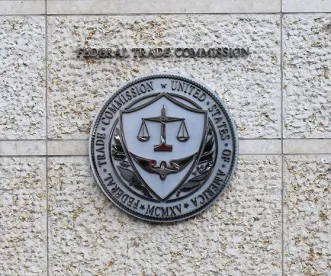The Federal Trade Commission (FTC) is ramping up enforcement of deceptive advertising with formal notices to new industries, to companies using influencers and by harking back to notices it released more than 50 years ago.
Last year, the US Supreme Court held in AMG Capital Management that Section 13(b) of the FTC Act (the Act) does not permit the FTC, in federal court, to seek equitable monetary relief.[i] In response, the FTC has focused its claims for monetary relief on its Penalty Offense Authority under Section 5 of the Act. To do so, the FTC sends companies a "Notice of Penalty Offenses" listing conduct determined to violate the Act in prior administrative orders. If a company engages in such conduct after receiving the Notice, the FTC may seek civil penalties of up to $43,792 per violation.
Since AMG Capital, the FTC has sent out Notices of Penalty Offenses to over 700 companies relating to use of endorsements and testimonials (including by influencers); to over 1,000 companies that advertise "money-making opportunities" to address claims regarding participants' potential earnings and risks; and to 70 for-profit educational institutions to address claims regarding graduates' job prospects and earnings. Those industries are watching carefully for follow-up enforcement actions by the FTC, seeking monetary remedies based on the Notices.
In April 2022, the FTC used its Penalty Offense Authority to bring enforcement actions for large monetary awards in a different industry. The FTC challenged two major retailers' alleged claims of "bamboo" content in textile products, and related environmental benefit claims. The FTC is seeking court orders imposing penalties of $2.5 million and $3 million, respectively, in these cases.
Perhaps even more interesting than the "bamboo" cases, themselves, was the FTC's concurrent announcement that it is "reviving" numerous other Notices of Penalty Offenses issued in the 1970s and 1980s that "remain valid and relevant today." The FTC specifically listed prior Notices regarding textiles, energy savings, fur products, home improvement products, auto rentals, bait and switch, toys, and weight reduction. The FTC warned that "[b]usinesses in these industries should familiarize themselves with the Commission's determinations in these areas."
It is now clear, if it was not already, that the FTC is serious about leaning on its Penalty Offense Authority to obtain significant monetary penalties for allegedly deceptive advertising practices. For companies in the above-listed industries, there is some urgency to reviewing advertising for compliance with FTC rules. Businesses in other industries would also be wise to take this opportunity for a compliance check-up before the next round of Notices arrives.
[i] AMG Capital Management v. FTC, 141 S. Ct. 1341 (2021).




 />i
/>i
